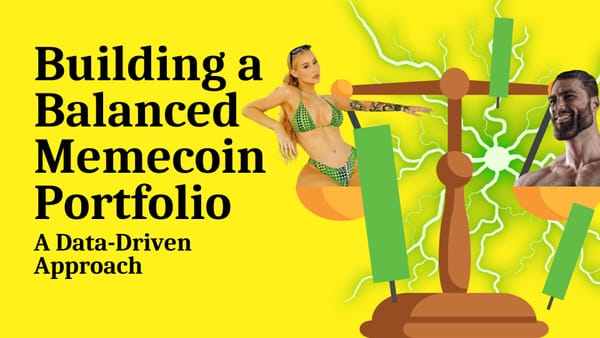Memecoin Thesis: The efficient market hypothesis, but make it stupid.

In a groundbreaking paper that has economists reaching for the bottle and crypto bros nodding sagely, Dr. Chad Yolonsky of the prestigious University of Reddit has proposed a revolutionary new economic theory: The Efficient Market Hypothesis, But Like, Really Dumb.
"We've long assumed that markets efficiently price in all available information," explained Dr. Yolonsky, adjusting his "HODL or DIE" snapback. "But what if they efficiently price in all available stupidity instead?"
The theory, dubbed the "Efficient Mememarket Hypothesis" (EMH), posits that memecoin prices always reflect all publicly available misinformation, baseless hype, and blind speculation. In other words, memecoin markets are perfectly efficient at being perfectly irrational.
Key points of the EMH include:
- All relevant (and irrelevant) Elon Musk tweets are immediately priced in.
- The market can remain stupid longer than you can remain solvent.
- Past performance is not indicative of future results, but sick gains are totally guaranteed, bro.
"Traditional finance nerds talk about 'rational actors' and 'perfect information'," scoffed Yolonsky. "But have they considered the raw power of millions of degens YOLOing their stimulus checks based on a TikTok they saw?"
The crypto community has embraced the theory with predictable enthusiasm. "Finally, someone brave enough to say what we've all been thinking," tweeted one influencer with laser eyes and a profile picture of a Shiba Inu in a spacesuit. "This isn't a bubble, it's just peak efficiency!"
Meanwhile, traditional economists are struggling to refute the theory. "I want to argue against this," muttered one Nobel laureate, staring blankly at a chart of Dogecoin's price history. "But at this point, it might actually explain more than our models do."
In light of the EMH, several major financial institutions are reconsidering their strategies. Goldman Sachs has announced plans to replace its entire research department with a team of Reddit moderators, while JPMorgan is reportedly developing a proprietary "Meme Sentiment Index" based on the dankness of r/wallstreetbets posts.
As of press time, universities worldwide are scrambling to update their economics curricula. Harvard Business School has already introduced a new course: "Advanced FOMO: Harnessing the Power of Collective Smooth-Brain Activity."
The Meme Street Journal's chief theorycraft correspondent (a sentient Magic 8-Ball that gained sentience after being dropped in a vat of Monster Energy) warns that while the EMH may seem like a perfect explanation for the memecoin market, investors should remember that in a truly efficient market, everyone's equally poor.
Remember, in the brave new world of memeonomics, past performance is not indicative of future results, but the number of rocket emojis in a tweet might be. This is not financial advice, but it's probably more reliable than whatever your favorite TikTok influencer is shilling. May your markets always be efficient, and may your memes always be dank.
About the Author: Kobayashi Mememoto is an independent journalist with years of experience at the intersection of memes, crypto, and finance. Kobayashi's articles have been featured in several finance and crypto publications, with his main expertise being in memecoin trading. Mememoto's motto? "If you're not willing to lose it all on the next pump.fun jeet token, are you even investing?"




